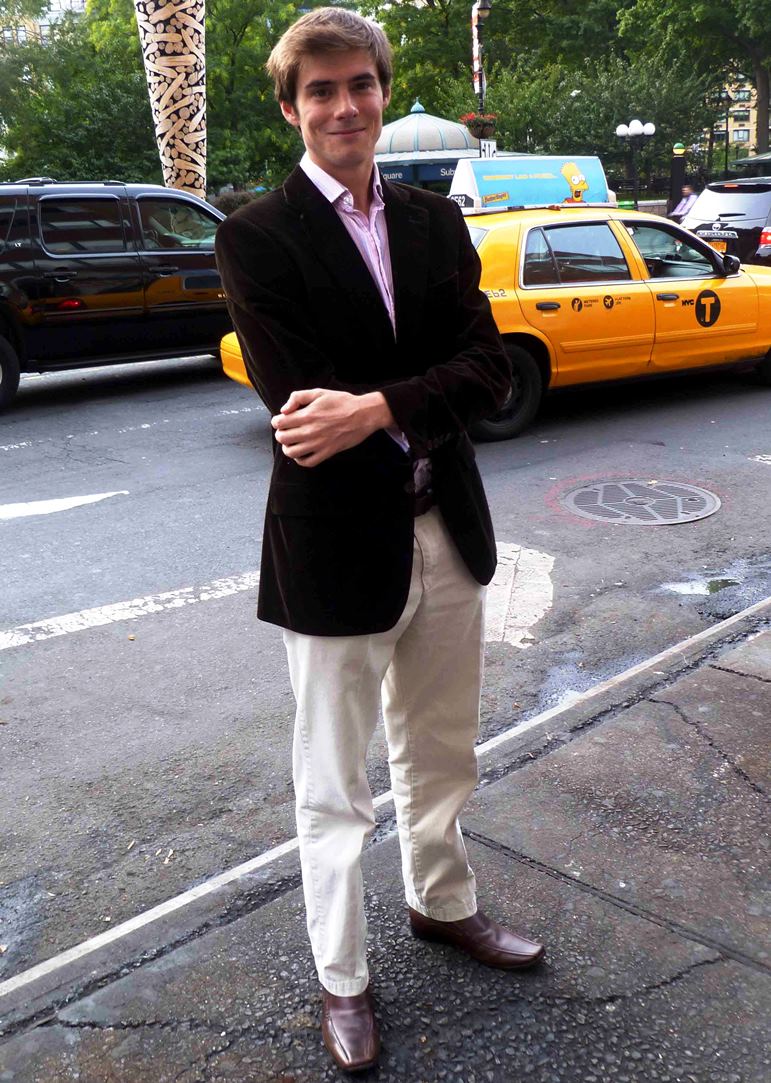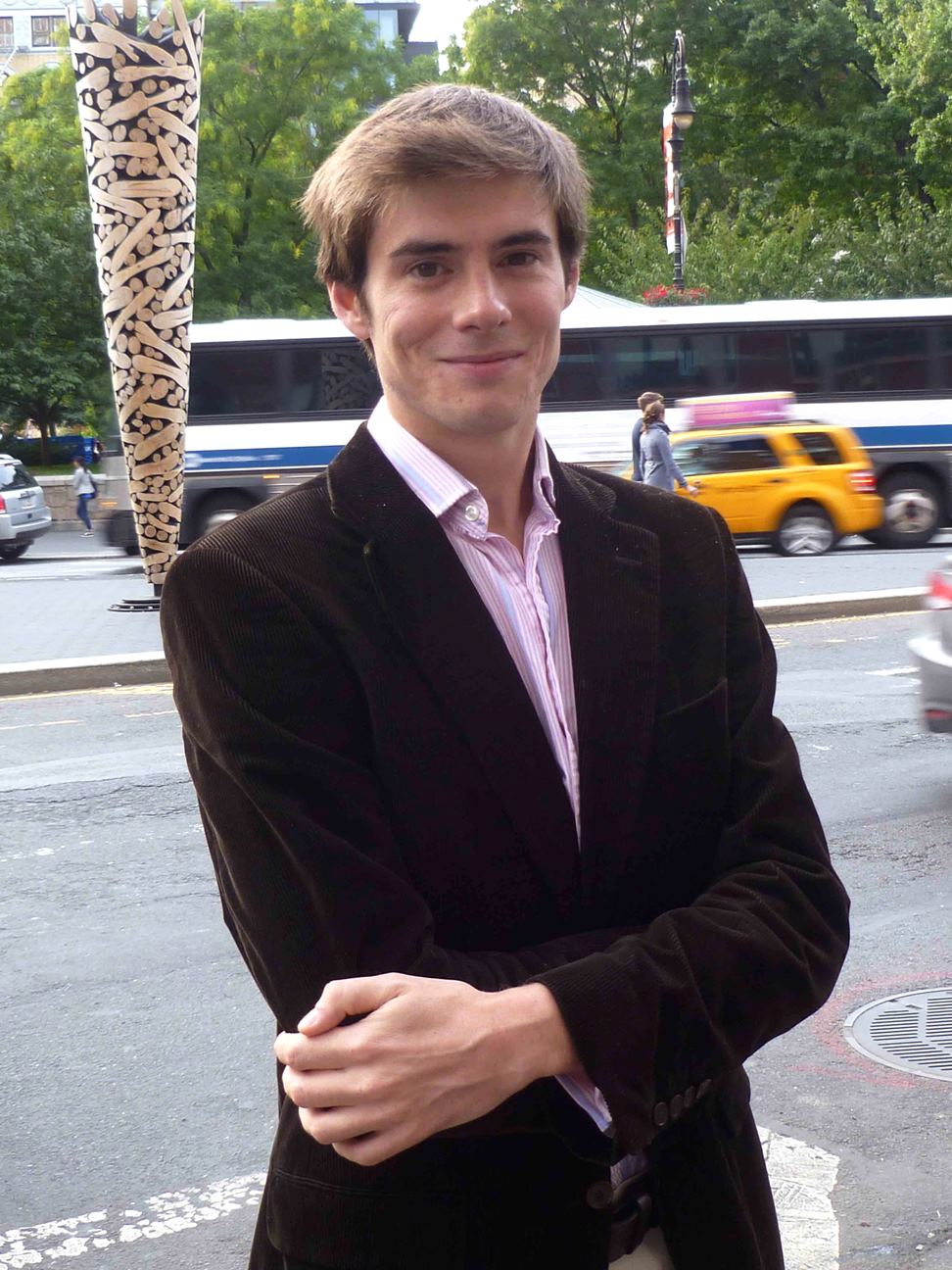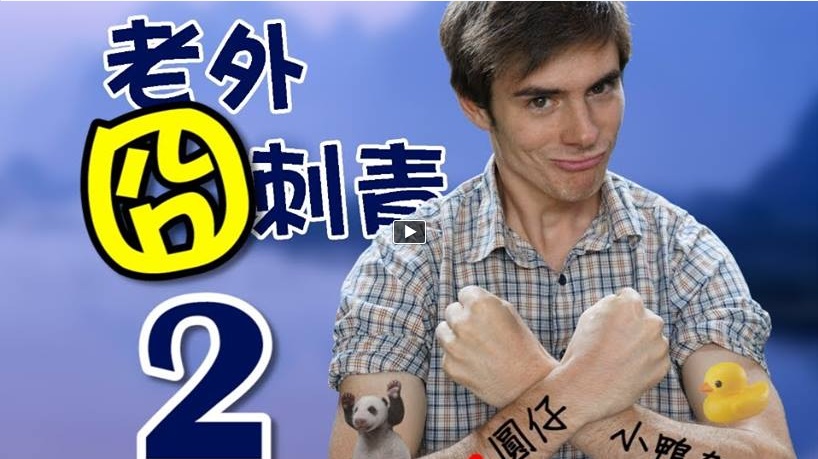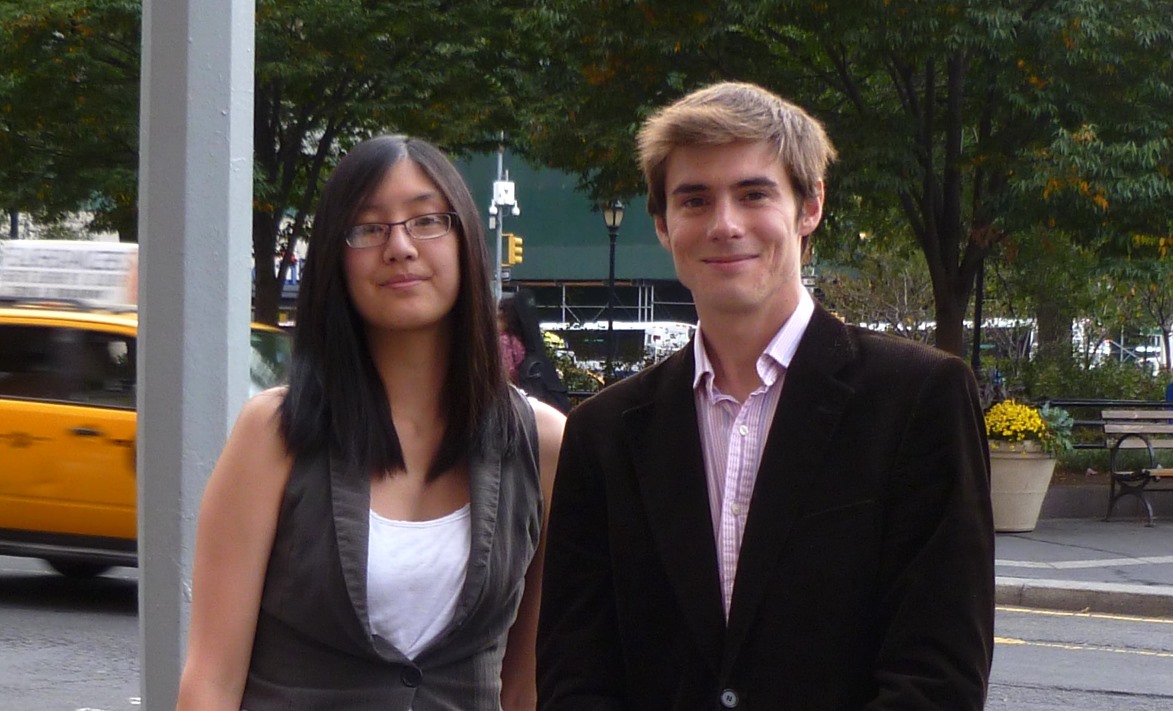By Candace Lee
Host and producer of Taiwan’s popular “Lao wai” show Lao Wai Kan Zhongguo (老外看中國) on New Tang Dynasty Television, Ben Hedges (郝毅博) first drew the public’s attention after starring in a slew of internet commentaries and high-traffic web series. He geared towards providing a Westerner’s view of Chinese affairs and culture. Ben graduated from the School of Oriental and African Studies at the University of London which included a year at the National Taiwan Normal University (NTNU) in Taipei, Taiwan. Hedges turned his fluency and interest in Chinese to journalism, a role that unites his background and heritage with his current cultural standing and insight.
Q: Tell me about your background. How did you arrive where you are today?
I was born and raised in Hong Kong. When I was nine, my family and I moved to the U.K., and that ultimately led me to the School of Oriental and African Studies at the University of London, where I studied modern and classical Chinese. As a kid, I was always interested in Chinese culture—things that ranged from the Tang dynasty poetry to kung fu—and it made me feel closer to my roots, to where I grew up.
Q: Could you tell me more about your profession?
I host a television program, on New Tang Dynasty Television, NTDTV, where I mainly commentate on newsworthy affairs in Taiwan and China, and provide a new perspective. Information is not always readily available in China, so NTDTV broadcasts with the forefront mentality that we are a free-information exchange program where opinions and current affairs are really opened up and accessible to the public.
We film the segments weekly in New York, sending them to Taiwan to be edited, and then they send it back; it becomes this cross-cultural correspondence that is important in the work that I do.
Q: Your youtube channel segments are also very popular; how did they come about?
A colleague of mine actually came to me about this seemingly crazy idea of having a “Lao wai” or foreigner’s view of China, something based at that time on a popular Canadian host called “Dashan” from a state run television network in China. They kept urging me into it, so eventually I agreed. At first, it was a fun, side amusement you would do that would play upon the comedy of the premise and we never expected it to become as big as it is now.
Then one week, I was to do a piece of commentary on a historical television drama I had never seen before (I’m personally more of a fan of modern-day dramas). I watched a few episodes of it, collaborated on the script for it, and we uploaded the video. The next day, my friend called me and asked if I had seen the channel recently. It had suddenly blown up: the story was on the front page of the entertainment section in the China Times and a few news networks reported on it. It turns out many Chinese viewers were interested in a Westerner’s perspective of their favorite historical drama.
From then on, realizing we had this popularity, we were a bit more selective of our topics for discussion, choosing what we thought our viewers were interested in.
Q: How has this newfound popularity affected you?
It’s strange, knowing you’re known for something you’re continuously doing in a different country overseas, when you’re living pretty anonymously in New York. Occasionally someone will stop me on the subway. Once, a family of Taiwanese tourists visiting the city who recognized me from the show asked me, “Are you that guy from NTDTV?”
Q: How did you learn to speak Chinese so fluently?
During my time at SOAS, in my second year, I visited Taiwan to gain some firsthand experience speaking the language. I suppose my career in broadcasting all started when I heard from a friend that worked at a local television network in Taiwan and started volunteering there. It was there that I was first exposed to broadcasting the news and being around people who were speaking Chinese all the time. I had always had an interest in human rights and was a part of the Amnesty International Club in my first year at university, so being so physically close to the news as it was happening was pretty amazing.

Q: How would you describe your personal experience in Taiwan?
I hung out with a large group of Chinese American students who also did not know Chinese fluently yet, and whose parents had sent them abroad to become closer to their ancestry. When we would eat at restaurants, the waiters would always give them the menus written in Chinese and me the English one, paired with a fork, and I would be confused when that happened, forgetting what I must have looked like to them.
People are extremely friendly over there, and I found they’re always eager to learn English or show off the English they’ve learned. But as a student, I was intent on speaking and learning the local language, so after a while I actually pretended to be French or even from an obscure European country so they wouldn’t talk to me in English. I did this once in a library when someone approached me, and I replied in Chinese that I was from Slovenia. A woman who happened to be passing by overheard this; excitedly came over to speak to me because she was from Slovenia. It was pretty embarrassing trying to explain to her why I had said that.
My appearance did set me apart, but it didn’t always get in the way of my studies. I used to go to a beef noodle restaurant in Taiwan that had great food, and I met the owner whose English level was about the same as my Chinese when I first got there. I studied full-time every day, and I quickly surpassed him and could really practice a lot of Chinese with him. We really got to know each other and used to help each other learn.
What I miss about Taiwan are the people and the genuine experiences I’ve been able to share with them.

Q: Have you visited any other Asian countries?
Besides Taiwan, I’ve been to Thailand and Malaysia. In Hong Kong, when I was younger, my family and I would vacation on an island called Ko Samui. Now a famous tourist destination, but before it was quiet and serene, relatively secluded from travelers.
I’ve also been to Japan—in the U.K., I was a rock climbing instructor for a while, so while I was visiting Japan I took the opportunity to climb Mount Fuji. Other than that, I visited some hot springs, which were really nice. Taiwan still has a few from when it was under Japanese rule
Q: You recently were interviewed at the AsianInNY 9th Annual Fashion Show and Celebrate Taiwan at Grand Central Terminal event; what was that like?
The event really reminded me of being in Taiwan, the performances and cuisine. They also had samples of the gourmet, high-grade tea that I really miss from Taiwan and I always ask my friends to bring back for me from when they travel there. After a while, they really got to know me at the Taiwanese tea booth. Before I stumbled upon it in Taiwan, I always used to drink traditional English black tea but actually after the whole tainted milk scandal, the supply from China was cut off. Then I discovered Taiwanese high mountain-grown oolong tea. I’ve never looked back. (The interview link: http://www.youtube.com/
Sitting down with Ben Hedges, he lives and breathes Chinese culture. He knows the worth and importance and treats it as such, working to share its richness and his wealth of knowledge with others; he genuinely loves the quirks and characteristics of its people and has made himself a part of them. The language is an outward expression of that passion, and he passes it on, spurring the same zealousness he teaches with onto those who have never taken the chance to learn it, including this writer and his anonymous viewers.
Visit his YouTube channels:
Lao Wai’s View of China: www.youtube.com/laowaikanzhongguo and
Learn Chinese Now: www.youtube.com/learnchinesenow





Great interview. I never knew Ben had such a rich background in Asian culture.
Ben is a really fun inspiration for my 9 yr old daughter in our journey for her Mandarin learning. I am from Colombia, and husband is from India, and we are lucky to get Chinese classes in our town, La Jolla, CA. Whereas all drilling for successful testing, he comes as one of the greatest shows to entertain and make us laugh with his darling personality and passion to teach the language!
Thank you, Ben!
Isabell
Mike.English. Phd literature.Writer.Fortunately or unfortunately announcing the start of an anti China campaign.Under the banner of Sassi Planet. Now the Lao wai site has finally tapped into what the taiwanese youth have attention on the dysfunctional chinese mainland…we are quietly connecting to persons willing to run the gauntlet of limiting chinese influence in Taiwan.
In the Arts the chinese are doing soft diplomacy to infiltrate and peddle the sick standards of the Beijing boys.Do your own investigation into the recent Taiwan international art fair.
Mr Ben has hit the road to truth years ago with his previous study and involvement with Amnesty International which often lambasts the dysfunctional society called China.{Source- the Amnesty Campaigns re China on Amnesty Web site}.Once on the road to truth it is perilous to try another side path.Look at hong kong.Tainted by mealy mouthed chinese standards.Is it not correct to be using the proper term “Taiwanese” on Lao Wei?? to communicate…not chinese. i am english. My first day in Taiwan it was very obvious Taiwan is NOT China. Even the Formosan body is different…let alone start on the track of observing the endless string of other differences. Whistling past the graveyard is a slow but predicttable disaster.. respectfully Mike Sassi.
Very interesting. Ben, how did you come to be born in HK? If your parents were Brits what led you to move to the US?